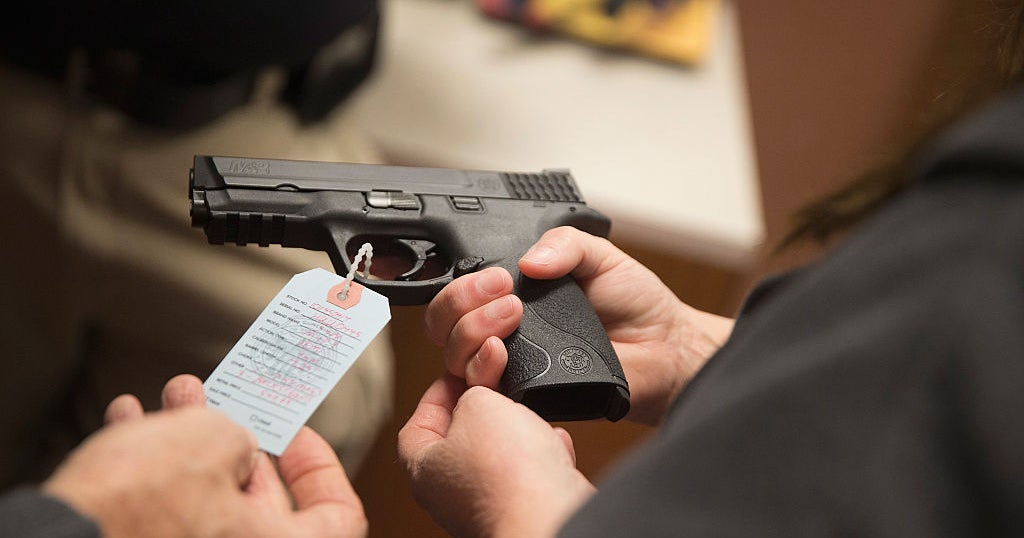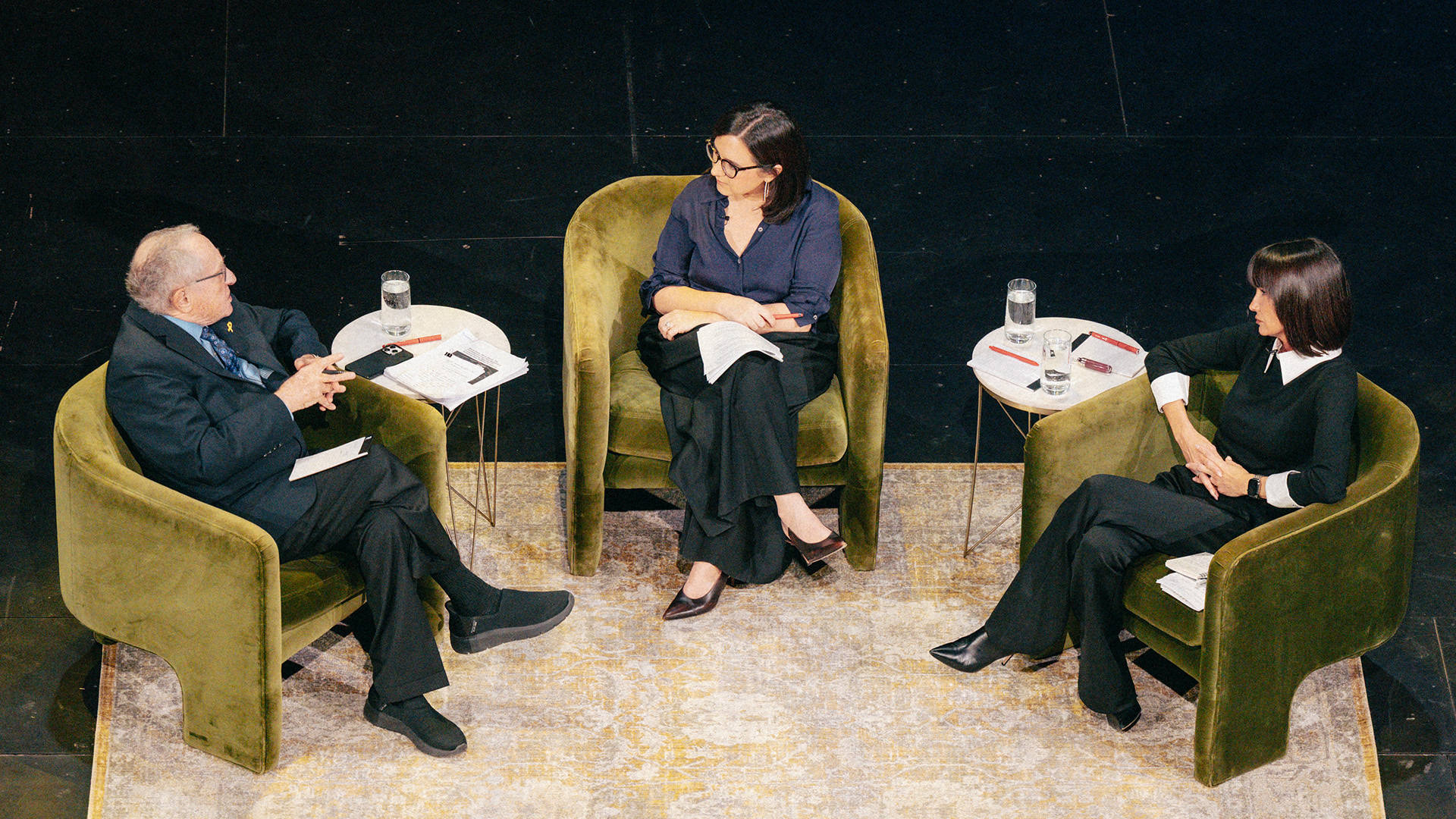Better Angels help communities ease political tensions
A recent CBS News poll found the number of Democrats and Republicans with negative views of the other party is growing. Unfavorable ratings hit almost 90 percent on each side in recent years. But a group called Better Angels is trying to bridge the gap.
It brings together people with differing opinions from the same community for face-to-face talks to ease tensions. CBS News correspondent Don Dahler visited a meeting in Lebanon, Ohio, where 14 people on both sides of the debate over gun control and the Second Amendment came together.
"The idea is to stick to our own views and let others describe theirs," said David Lapp, who leads the discussion and enforces the rules. At Better Angels meetings, participants identify themselves as red or blue and the conversation is equally split.
"Where do you stand on the gun rights, gun control issue? Who wants to go first?" Lapp said to the group.
"I am adamantly, seriously upset when people start to try to infringe on that Second Amendment. It really does disturb me," Bill Fry, of the red group, said.
"We are in a spiritual battle. This is not a battle of anything else, it is a battle of good and evil," Teresa Paynter said.
"I know with my grandchildren, when I travel in some areas, first thing I say: Do we have our guns? Because I want to be able to protect them," Maryann Harrison said.
The reds then have to confront downsides to their ideas.
"Are we willing to pay more taxes to put… more security cameras in our schools?" Dave Reuss asked.
Next comes the blue team.
"I don't see myself in the Second Amendment although I recognize it's there," Angela Brown said.
"It should be like every other amendment in the bill of rights, that it's not absolute," Rob Weidenfeld said.
"Why don't we have extreme vetting for owning a gun?" Kouhyar Mostashfi said.
But they also had to face the downsides.
"Will there be a black market? Sure there will be," Noha Eyada said.
Some found that challenging.
"I don't see a downside," Larry Bauer said, as the group laughed.
This group in Lebanon has been having these tough conversations for over a year and a half, and they recognize it hasn't been easy.
"Whether you're blue, red, it doesn't matter at the table, you want to see something happen… and we all realize that doesn't come free," Reuss said.
"Before I came I was just thinking the other side would just be like very status quo and I think the openness to the understanding that there is an issue in that proper training could help was a start," Brown said.
So far over a thousand people have taken part in the workshops reaching 31 states. Almost 150 towns and cities will be launching workshops this year.
"Is this more therapy than debate?" Dahler asked the group.
"It's not so much a debate as it is to be enlightened because we have so many stereotypes… this gives us a chance to see that it's not really the way it is," Andie Moon said.
"You have to listen, it is extremely educational just to hear what comes out of different people, including my own red friends," Reuss said.
"Is there a part of you that you really want to try to convince the other side? You want to change some minds?" Dahler asked.
"If we were having this discussion on the outside I would be chomping at the bit to go after someone's throat. That's not the objective here," Weidenfeld said. "The objective is to try to see where we have common ground. So when you say therapy... it is a kind of therapy for us, but my idea is to pass this therapy on because this country needs that kind of therapy."
That therapy created a friendship between Greg Smith, a self-ascribed Christian conservative, and Kouhyar Mostashfi, an immigrant from Iran, by confronting stereotypes.
"He said you go first," Smith said. "I said… 'I have four initials for you, four letters: I-S-I-S. I didn't have to say it.' Kooyar said, 'Stop right there.' He said, 'My religion has been hijacked.' I said, 'You stop right there. Mine has too.' And so from that point on we were able to look for common ground. Now we travel together. We eat together. We even pray together."
"Despite what many people think, Americans are very united," Mostashfi said. "We just need to demonstrate that to the country… and unfortunately only our differences are being portrayed.
By the end of the evening, the group found the similarities were that they all wanted to protect their children and grandchildren, and they all thought training for gun owners was essential. They also told us unanimously that the media were to blame for the hyper-partisanship in America.



